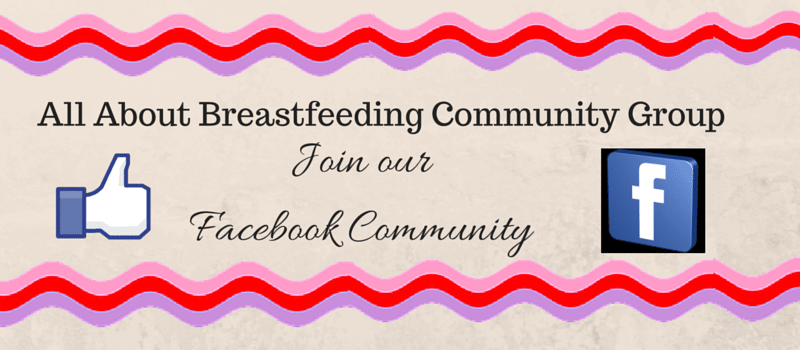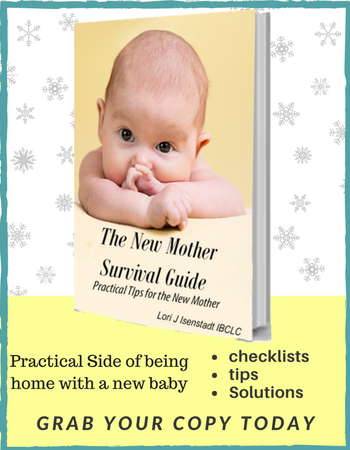Episode 359
After updating the insurance reimbursement information on my website, I decided to share my thoughts on this subject in this podcast. When it comes to healthcare in the United States as it relates to lactation services, it is pretty piss poor. While there are a few insurance companies providing reimbursement, we have a long way to go for complete coverage for everyone.
If you have insurance coverage, you need to check into exactly what they do cover. The expectation is that since they cover maternity services and pediatric appointments, that lactation services would also be covered. The assumption is that if they will give you a free breast pump, well then lactation services would also be covered. The reality is that this is not necessarily so.
I am going to share with you a very common experience. When you call up your insurance company, you are told that yes they do cover this service. You are very pleased to learn this and request a list of IBCLCs in your area that provide lactation consults. You quickly find out that this process is not easy. Your insurance company tells you that while they will cover lactation services, they do not have names of any IBCLCs providing this service. This is confusing to you. They say they will cover it ( although no one guarantees) but they don’t have a list of anyone you can see.
If you called up to find the names and numbers of pediatricians, you would be given a list or a website where you can go to find providers in your area. But this does not happen so easily with IBCLCs. We are frustrated with this process and know you are too.
The main reason you are not given a list is because your insurance company has not contracted with private practice IBCLCs to be in their network. We want to work with your insurance company but cannot be a provider for them as they will not accept us in their network. In the state of Arizona, there were over 82,000 births in 2017. In the state of Arizona, there are between 275 and 300 IBCLCs. And yet, less than perhaps 20 have been accepted into the insurance programs as a provider.
In the whole state of Arizona. Where 82,000 mothers gave birth in 2017. This is exactly why you are getting the runaround from your insurance company.
The last time I applied to a major insurance provider I was denied. They stated my area was saturated with providers. What??? A handful of IBCLCs have been accepted as providers and the area is saturated? What??? I have been a breastfeeding educator for over 25 years and an IBCLC since 2001 and yet I am denied the ability to become a provider for the insurance companies. This is insane.
Earlier I stated statistics about how many births in AZ there were and how many IBCLCs in AZ there are. The CDC.gov website, in 2018, stated that 82% of new mothers started off their babies new life breastfeeding. By 6 months of age, only 26% of the babies were exclusively breastfeeding. The research results are clear – most mothers do not continue breastfeeding as long as they had initially desired because they have a difficult time accessing professional help with breastfeeding. The report states that mothers may not be getting the support they need from health care providers, family members and employers to meet their breastfeeding goals.
I am ranting about this for all the moms and babies who are denied good lactation care. I am also ranting about this because I want you to NOT let the lack of coverage dictate how and what you feed your babies. Do NOT allow the insurance companies to dictate how you feed your babies.
Hear me out as I explain what I mean by this statement.
As a first time mother, newly postpartum with my first baby, I suffered horribly with painful breastfeeding. My nipples were cracked and bleeding. Breastfeeding hurt me, before, during and after each breastfeeding. I reached out for help, but there was none available. The closest I was able to find help from were LLL who were volunteers. Every time I called and was crying, I kept being told the same thing… it is normal for breastfeeding to hurt in the beginning, but just keep going and it will get better, and BTW, be sure to come to our monthly meeting. To say that NONE of this helped me would be an understatement.
Breastfeeding was incredibly painful and it took away some of the joy in the early days of new mothering because I would look at my baby when she cried to eat…. and I would start crying too. When Alisha latched on, I would clench my jaws and tremble in pain. And if noone was there, I would let the tears roll down my face and if someone else was in the room, I would do by best to hide my tears. When she was feeding, I would look at the clock and decide when she was done, rather then just let her decide when she was done. I didn’t know it then, but I do now…
Breastfeeding is not supposed to hurt and when it does, it is a sign that something is not quite right. I also didn’t know then that cutting her from having a full feeding, created havoc with my milk supply. Given what I know now, it is no wonder that I struggled with supply.
There were no IBCLCs at that time and noone to meet with to help me out. Somehow I muddled through it all and made it through the other side. However, I know for sure if I had access to a lactation specialist, I would have jumped at the chance. If I could not afford it, I would have asked my mother or mother in law or a friend for a loan. Yes, I was that desperate that I would humble myself and go to lengths that I would not ordinarily go through, especially if it was something just for me.
In the early years in my role as an IBCLC, no insurance companies paid for my services. Seeing a lactation consultant meant that you paid for it. Whether you had insurance or not… it was all out of pocket.
Mothers had to decide if their breastfeeding situation warranted paying an expert for help. Now I find that many mothers are deciding if they should get help solely based on if their insurance company will pay for it. If the insurance company pays for it, then it is an easy yes. If there insurance company does not cover it, some moms are trying to decide if they should pay for it out of pocket. They are asking themselves if their situation warrants this expense.
There are times when I speak to a mom and once I hear her concerns, I can easily direct her to a website. While she may not get the personalized care she desires, she will be able to access the help she needs. Her concerns were less of a breastfeeding medical/clinical need and more of a newborn mothering, going back to work, pumping situation.
Then there are times when I strongly encourage her to make an appointment – She is saying that if she does not get help, she will probably quit. It is either too stressful, too painful, or causing too much anxiety.
These moms are describing situations where the best way to help her is for both her and her baby to be seen where a full evaluation can be given. Her challenges are great. To offer breastfeeding advice over the phone would be negligent on my part. I could easily be missing some crucial pieces that would factor heavily into helping her solve her challenges.
As a lactation consultant, I know the emotional hardship that a new mother endures when breastfeeding challenges are creating problems with milk supply, babies weight gain and pain during breastfeeding. My greatest wish is that you are able to see beyond the immediate financial aspect of your care & do whatever you can to get the help you need so you can get to a place of breastfeeding your baby in comfort and joy. Every mother and baby deserves the very best care.
Over the years, I have met my fair share of moms who were not able to continue to breastfeed their first baby because they held off getting help. They have told me that they either just kept hoping it would get better on their own, or they were upset that their insurance company did not cover lactation services. They felt that they were already paying so much for their insurance plan, they were going to be darned if they were going to pay for this service out of pocket. When asked about their situation later on, When the breastfeeding is lost, mothers will admit to becoming upset, angry, and some become quite depressed. If they had to do it all over again, most will say they wish they would have figured out a way to get help so they could resolve their breastfeeding relationship because to not have done so created emotional upheaval. They also realized another issue.
I would like for you to think about this mindset for a few minutes.
The reality is, that it is not a question of feeding your baby. Are you going to feed your baby or not? Of course you are going to feed your baby. And whether you spend money on things breastfeeding related or formula related, you are going to spend money feeding your baby.
So, why not get to make the choice yourself. Decide what you feed your baby and how you feed your baby. I want you to be empowered to decide how you want to spend your money.
Mothers realized after the fact that they did wind up spending money on feeding their baby and what they wound up doing was not necessarily their first or second choice.
If they stopped breastfeeding altogether, they needed to spend money on formula. Their insurance company was not paying for the years worth of formula, which in 2019 is easily close to $2,000. That came out of their pocket. In hindsight, mothers realize that one way or another, you do have to spend money to feed your baby. If the insurance companies are not helpful, that totally sucks. No really, it does. It really does suck.
What’s worse though is that parents are not realizing at the time that they have just allowed their insurance company to dictate how and what they get to feed their babies. In other words, their mindset is, if they have insurance, but they don’t cover lactation services, then they certainly aren’t going to pay out of pocket. I have major issues with insurance companies and I can totally appreciate this knee jerk reaction. However, I want to try and clear away the angry emotions and help you think logically about all this.
For the moms that get through their challenges, it is a shame that they had to suffer while waiting for breastfeeding to get better. For the moms who were not able to help themselves and they discontinued breastfeeding and switched to formula, you are now paying every single week for a food product that is not your first choice. A private lactation consult may have cost 1-2 weeks worth of formula. In a short amount of time, breastfeeding could have become better for you. But now you are stuck. For a whole year, you are spending money on a food that you did not even want to feed your baby. Yes, that sucks. Perhaps you are no longer breastfeeding, but you have switched to pumping and bottle feeding. While it is great that you are providing your milk for your baby, it sucks that you are having to pump, if this is not what you had wanted to do full time.
This is what I mean when I said the statement: Do no let your insurance company dictated how and what you fed your baby.
You see, feeding your baby is not an option. Period. You love your baby. You will feed your baby. Your baby will grow and your baby will gain weight. You will spend money on feeding your baby. Whether it be on breastfeeding help and nursing bras and breastpumps, or perhaps it will be on formula. My point is, parents should get to choose. Not let the insurance companies choose for you.
When you are suffering with breastfeeding challenges and you are waiting on your insurance company to decide, you may wait too long and the breastfeeding will be lost. Your supply may have suffered. Your baby may have lost too much weight. You may have become so anxious about ensuring your baby gets enough that now bottles and formula or bottles and your milk seem like an easier route to go. You may have been in far too much pain and needed relief and could not continue breastfeeding.
Things are far from perfect, however, changes are happening all for the positive.
If your insurance company covers the expense and is contracted with a local IBCLC, you are sitting pretty. You can make your appointment, receive help without spending any additional money.
If your insurance company DOES fully cover you, but you cannot get in to see an IBCLC in network for many days, consider the situation that you are in and decide if you can wait. If you can find an IBCLC that you can get in sooner to see & she is out of network, pay ahead and get reimbursed later. You will be glad you did.
If your insurance company covers the expense, however, you need to pay first and get reimbursed later, this is still pretty good and you are ahead of a majority of others who do not have insurance who covers and reimburses or who do not have insurance coverage at all. If your initial reaction is that you cannot afford to pay out of pocket and wait for reimbursement, take a hard look at your finances and see if you can be creative with your expenses. Can you move money around, pay 2 months of partial payment without incurring any additional costs, rather than the full amount like you would prefer to.
If finances are really tight, don’t be shy. A close family or friend will likely be very happy to loan you the money so you can get help. Most are okay to wait a little bit for you to pay back and others are glad to gift it to you. I have seen parents accept gifts of all kinds – like baby furniture, car seats, rockers, swings, clothes, portable cribs and so much more. But when it comes to asking or accepting money for a lactation consult, they feel shy about it. There is no reason to be shy, you are asking for help for something that is so near and dear to you and can have much more of a lasting impact than the clothes or toys you have for your baby. It all brings us joy, but your mindset shift needs to be – what is more important?
I have had parents who have taken me up on my suggestions. They have brought back some items they received as a gift. They have committed to a few less luxury expenses – like doing without a month of eating out or take out food, as this will cover the cost of their consult. I have to say that when I learn of the major commitment some moms have made, the lengths they have gone to get money so they could pay for a consult, I am incredibly impressed.
I have set aside as a business expense, the commitment to offer a few pro bono cases each year and I happily offer this to some parents. I know that many of my colleagues do the same.
Let’s be real and fully acknowledge that there is no guarantee in anything in life. None of my colleagues can guarantee that if you have a private lactation consult that your breastfeeding problems will all be solved. Statistically speaking though, you have a pretty good chance of this happening and we certainly do our best make this happen.
Of course, I am standing up and being strong for myself and I am fighting for my profession. I know that you would do the same for something or someone that you believed in and cared for. I believe and care for breastfeeding mothers and I am fighting to make common sense out of this whole insurance debacle so mothers will get the help they need.
As a new breastfeeding mom, it would be normal for you to feel overwhelmed and sleep deprived and have many questions as you learn the art and science of breastfeeding. It is not normal for you to struggle everyday with the basics of breastfeeding – there should be no pain, you should have a fairly easy time of getting your baby to latch on and your baby should be quite satisfied after most breastfeeding and gain the appropriate amount of weight each week. While it would be nice to have my services covered and you not have to pay anything out of pocket, this sometimes is not able to happen.
However, most insurance companies will easily accept your paid bill and reimburse you for your lactation consult. If you are turned down, your insurance company has a claim process that you can follow to do your absolute best in getting your reimbursement. I wish all this was easier. Sometimes we just have to work harder for what we want.
As I close out the show today, try and tap into your own mindset on this subject. Do not let the insurance companies dictate how and what you feed your baby. Formula is a big expense. Pumping can be a hassle or just not what you really wanted to be doing. In the end, feeding your baby is not an option. We all know that you are going to feed your baby some food, one way or the other. How and what you feed your baby should be your choice, not your insurance companies.
As you all know by now, I am a huge supporter for breastfeeding education as I know that this helps to reduce breastfeeding challenges. Ongoing support with an IBCLC and being part of a group of moms are among the top reasons that experts say help moms meet their breastfeeding goals. I invite you to learn more about the breastfeeding class that I have developed just for you, by going to – aabreastfeeding.com/breastfeedingclass
My greatest wish for all of you is that you enjoy your breastfeeding relationship and have the opportunity to breastfeed your baby in comfort and joy. Until the next show, bye bye
Your Online Breastfeeding Class
Learn how to breastfeed – Be comfortable. Be confident.
The learning continues well beyond the average breastfeeding basics class that is 60-90 minutes. In this class, we have over 15 hours of audio lessons, combined with many hours of videos to help support what you are learning. We cover breastfeeding and medication safety, what to do if your baby does not latch on, common breastfeeding challenges, tongue tie, premature babies, building a good supply, returning to work and pumping. Take a look at the list below and follow the link to the class page so you can see more specifics of what is covered. I want to ensure that we got you covered and that you have great support well beyond the newborn days.
- Using your pregnancy time to prepare for breastfeeding
- Tips on how to prepare your home for a newborn
- Specific details about the first 24 hours after birth.
- Exactly what to expect the first two weeks after birth
- What can you do if your baby is not latching on
- Common and not so common breastfeeding challenges
- What you can expect over the next few months
- Returning to work as a breastfeeding/pumping mom
- Pumping and storing your milk
- When to begin pumping and building your freezer stash
- How to make a smooth transition to postpartum life
- Lessons dedicated to partners and breastfeeding knowledge.
- Breastfeeding and the 1 year old
- Breastfeeding the toddler and beyond
- Tandem nursing
- Breastfeeding through a pregnancy
- Medication and mother’s milk
- Weaning
Once you register for the class, you have immediate access to:
- Audio Lessons
- Videos
- Educational handouts
- Helpful checklists
- Our “members only” group
- Weekly group LIVE Q&A sessions
Gain confidence in breastfeeding.
Expert advice from Lori J. Isenstadt, IBCLC who has over 25 years of experience in maternal health and lactation. I will help you navigate the ins and outs of breastfeeding.
Listen anywhere and anytime. Imagine not having to sit in a classroom or stare at a screen. You can learn all about breastfeeding while going for a walk, driving to work or running errands, traveling on a plane, train or bus. Because you can download the audios, learning is easy and convenient. Get ready to learn anytime whenever it’s convenient for you and your partner. You can be cooking dinner together and listening to the class. Perhaps relaxing together in the evening in your comfy clothes. You can learn together. Easy access to all class materials. Your class never expires. You’ll be able to listen and download the materials at your convenience.
You are not alone!
Once you are a student in the breastfeeding class, you have regular access to ongoing support for the whole time you are breastfeeding. You can have your questions answered by Lori J. Isenstadt, IBCLC, in our private group as well as our weekly live Q & A sessions. Just check out the Bonuses below to see how I provide you with ongoing support..
Exclusive Bonus #1
Immediate access to a private group for class students only. I will be answering your questions 5 days a week.
Exclusive Bonus #2
Invitation to join our weekly Q & A session with Lori and other students.
Exclusive Bonus #3
Need additional help? *25% discount off a private consult – for students only.
*If you are in the Phoenix metro area. use this link to schedule your Office or Home lactation consult.
*If you are out of the area, use this link to schedule a Skype call
Do you have a question about the class before you purchase? Send it to – aabreastfeeding@hotmail.com
 Register for the Breastfeeding class
Register for the Breastfeeding class
http://www.aabreastfeeding.com/breastfeedingclass
Additional ways to connect with me:
Like us on Facebook HERE:
http://bit.ly/2dNPlsC
Follow us on Twitter HERE:
@breastfeedingaz
http://bit.ly/2BfEIJ2
Follow us on Pinterest HERE:
https://www.pinterest.com/lorijisenstadt
Subscribe on iTunes the All About Breastfeeding show HERE:
https://apple.co/2FJGwsV
Lori J. Isenstadt, IBCLC
 Lori Jill Isenstadt, IBCLC is a huge breastfeeding supporter. She has spent much of her adult life working in the maternal health field. Once she became turned on to birth and became a childbirth educator, there was no stopping her love of working with families during their childbearing years. Lori became a Birth doula and a Postpartum doula and soon became a lactation consultant. She has been helping moms and babies with breastfeeding for over 25 years. Lori founded her private practice, All About Breastfeeding where she meets with moms one on one to help solve their breastfeeding challenges. She is an international speaker, book author and the host of the popular itunes podcast, All About Breastfeeding, the place where the girls hang out. You can reach Lori by email at: [email protected] or contact her via her website: allaboutbreastfeeding.biz/contact
Lori Jill Isenstadt, IBCLC is a huge breastfeeding supporter. She has spent much of her adult life working in the maternal health field. Once she became turned on to birth and became a childbirth educator, there was no stopping her love of working with families during their childbearing years. Lori became a Birth doula and a Postpartum doula and soon became a lactation consultant. She has been helping moms and babies with breastfeeding for over 25 years. Lori founded her private practice, All About Breastfeeding where she meets with moms one on one to help solve their breastfeeding challenges. She is an international speaker, book author and the host of the popular itunes podcast, All About Breastfeeding, the place where the girls hang out. You can reach Lori by email at: [email protected] or contact her via her website: allaboutbreastfeeding.biz/contact

Submit a comment
your email address will not be published








